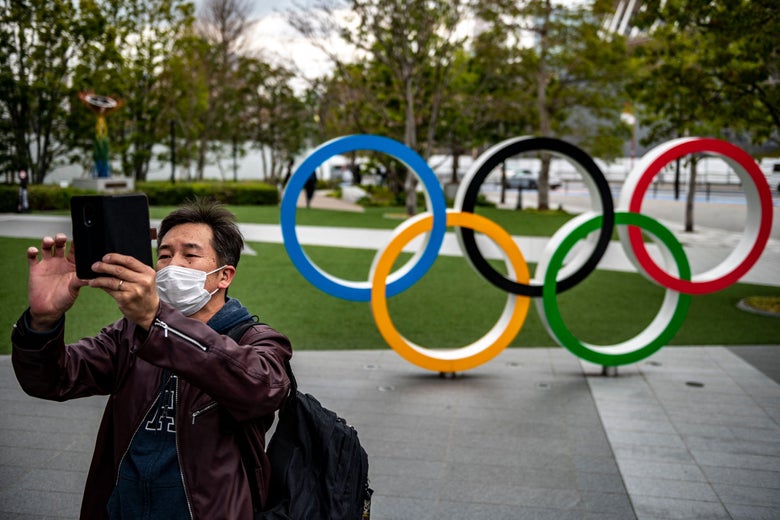After all the unconfirmed rumors and reports, it is finally official: there will be no international spectators at the Summer Olympics in Japan. About 600,000 tickets have been sold to people outside Japan and around 4 million to people inside the country. All tickets that have already been purchased by someone who lives outside Japan will be refunded. The decision was announced on Saturday after a virtual meeting between the various actors of the Summer Games, including the International Olympic Committee, the International Paralympic Committee and local and national governments.
“Currently, the situation for COVID-19 in Japan and in many other countries around the world is still very challenging and a number of variant strains have emerged, while international travel remains severely restricted globally,” says the statement announcing the decision. “In order to give clarity to ticket holders living abroad and to allow them to adjust their travel plans at this stage, the parties on the Japanese side have come to the conclusion that they will not be able to enter Japan at the time of the Olympic and Paralympic Games. “
The Tokyo Olympics were scheduled for last year and organizers were forced to postpone the event for the first time in its history due to the coronavirus pandemic. The Summer Olympics are now scheduled for July 23 to August 8, while the Paralympics will take place from August 24 to September 5. Japan seems determined to continue with the Olympics, although the population appears to be largely against it. A recent survey revealed that about 80% of people in the country prefer the Olympics to be postponed or canceled.
Experts say that while banning onlookers from abroad would certainly decrease the risk, many people would still be going to Japan for the Olympics and that could lead to death. “Everyone wonders if this is something we need to do when taking such a risk?” Norio Sugaya, an infectious disease specialist at Keio University in Tokyo, told the Wall Street Journal.
Readers like you make our work possible. Help us continue to provide reports, comments and criticisms that you won’t find anywhere else.
Join
